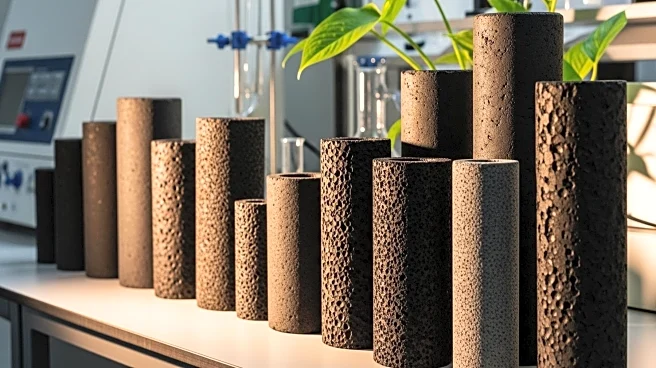What's Happening?
Recent research has highlighted the potential of biochar, a charcoal-like substance derived from agricultural waste, in removing pollutants from treated wastewater. Traditionally known for its ability to adsorb contaminants, biochar has now been found to actively degrade pollutants through direct electron transfer. This discovery was made by Dr. Yuan Gao and his team at Dalian University of Technology, who demonstrated that biochar can break down organic pollutants without the need for additional chemicals. Their experiments showed that direct degradation accounted for up to 40% of the total pollutant removal, indicating that biochar's cleaning power is significantly higher than previously understood.
Why It's Important?
The findings about biochar's capabilities could revolutionize wastewater treatment processes. By reducing the need for additional chemicals, biochar can lower operational costs and decrease sludge production in water treatment plants. This makes the process more environmentally friendly and cost-effective. The ability of biochar to maintain its degradation power over multiple reuse cycles also highlights its sustainability. As industrial pollution remains a global challenge, such innovations are crucial for developing greener purification methods that benefit both industries and communities.
What's Next?
The research paves the way for the development of more efficient biochar designs tailored to address specific water pollution challenges. As the understanding of biochar's electron transfer capabilities grows, it is likely that more industries will adopt this technology for wastewater treatment. Continued research and development could lead to widespread implementation, potentially transforming how water purification is approached globally.
Beyond the Headlines
This discovery not only enhances the practical applications of biochar but also underscores the importance of re-evaluating existing technologies for hidden potentials. The study challenges the conventional perception of biochar as merely a passive filter, positioning it as an active agent in environmental engineering. This shift in understanding could inspire further innovations in the field, promoting a more sustainable approach to managing environmental contaminants.









